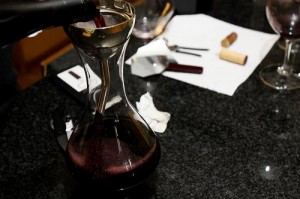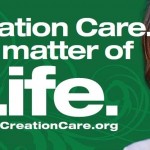by Mitch Hescox
Luke 5:36-39 (NIV)
“He told them this parable: “No one tears a piece out of a new garment to patch an old one. Otherwise, they will have torn the new garment, and the patch from the new will not match the old. And no one pours new wine into old wineskins. Otherwise, the new wine will burst the skins; the wine will run out and the wineskins will be ruined. No, new wine must be poured into new wineskins. And no one after drinking old wine wants the new, for they say, ‘The old is better.'”

Several years ago, Bill Easum wrote, Sacred Cows Make Gourmet Burgers. Bill’s take: those already in the church like to control and operate in a way that is comfortable, stable, and fits nicely in their way of doing things. The book highlights the truth that every pastor or organizational leaders knows all too well: No one likes change. Our ease with current praxis aids our rationalization that what we are doing is correct, accurate, and in the case of the church, sacred. Simply, our love of routine and comfort deludes our quest for truth and ultimately our own openness to accountability or correction.
Our way translates into the “right way” regardless of the changing culture, new revelations, or understandings that are more accurate. At the local church level, some may wonder why Grandma Sarah is no longer “good enough” to staff the nursery instead of a trained staff member, or even volunteer who undergoes background checks and proper security procedures. These new procedures are required in a world where even church leaders have failed our children.
Far too often, we dream of the “good-old days” that nicely fit into our perception instead of reality, hence Jesus’ comments.
Jesus rocked the religious and cultural powers in his day. He didn’t “fit” their various perceptions of Messiah or especially the Kingdom of God. This doesn’t mean that their original precepts were wrong. As human history depicts so well, it’s easy to transform our good intentions into idols.
Our predisposition to “old wine” demonstrates why so many in the evangelical church openly resist many of the Christian social justice issues hotly debated in today’s world. These issues become culture wars as they force us to consider how to press new wine versus the old vintage. The new wine presses us to reconsider our models, lifestyles, and understanding of the good news in Jesus, and perhaps nowhere is that more apparent than the reaction of some to climatechange.
No one denies that cheap and abundant energy transformed the United States into a world power. Our inexpensive energy fueled a national sense of independence and self-reliance. Fossil fuels provided the individual freedom to get in our cars and go anywhere. The creation of the rural electric-cooperative powered even the most remote household with cheap electricity. These societal advancements quickly transformed from a blessings to idolatry. We became dependent on fossil fuel, and our energy addiction foils Christ’s goal for the common good. As with all addictions, they transform into self-interest idolatry. Our self-interest for cheap energy fails to account for all costs, especially those dumped upon our neighbors.
All over the world, our brothers and sisters in Christ cry, “Help!” As carbon pollution continues, food and water become more scarce, diseases spread, and millions are forced to flee as the temperatures increase, storms become more intense, oceans levels rise, and violence exacerbates. The Cape Town Commitment, produced through the Lausanne Movement (founded by Billy Graham and John Stott), provides a good place to start hearing their cries. Hundreds of thousands die each year because of climate change, millions upon millions suffer, and it will only get worse unless we transform. Simply put climate change is the great moral challenge of our generation; we will response or keep drinking the old wine?
Just as the Pharisees and Sadducees in Jesus’ day kept pouring the old wine, many today continue offering the same drink. As always, it’s easier to remain the same than change. Is that faith? Please don’t allow fear ” fear of change, fear of science, fear of government, fear of anything to be your deciding factor. Instead, allow faith and hope to be your guide.
I can’t speak for each of you, but I choose the new wine. In this season of Easter encountering Jesus on my Emmaus Road remains my hope. If we allow ourselves to be transformed by Jesus, then live as good stewards, and care for “least of these,” Jesus’ will lead us to an abundant life for all creation. Let’s not place our trust in “old wine” “it quickly sours, but eat the bread and drink the new wine, they are Christ’s promises for abundant life.
Rev. Mitch Hescox is the President & CEO of the Evangelical Environmental Network.












